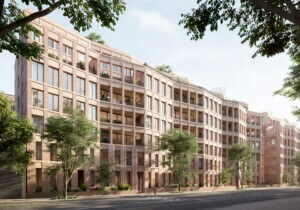Will the President of the United States make up to $14 million from the sale of the largest federally-subsidized public housing development in the country?
This is an unfortunate question to pose in an era where affordable housing seems increasingly scarce. Starrett City, also known as Spring Creek Towers, is an extensive housing complex situated between the Brooklyn neighborhoods of East New York and Canarsie overlooking Jamaica Bay. This summer, it will be sold for an estimated $850 million, and President Donald J. Trump’s family business collectively owns about 16% of the development, so they stand to profit a hefty sum. As The New York Times reported, Trump himself could reap up to $14 million from the sale. Now that Trump manages the federal agency involved in its sale – Ben Carson’s Department of Housing and Urban Development – concerns about potential conflicts of interest have understandably bubbled up among both the public and Congress members.
In early July, two congressional Democrats – Representative Elijah E. Cummings of Maryland and Representative Hakeem Jeffries of New York – requested extensive records from the Trump family regarding their organization’s communications with the development’s owners, banks, and federal officials after the 2017 election. The potential conflicts of interest raise larger concerns about the operation of HUD in general, with massive budget cuts perhaps leaving “the type of federal aid that flows to the owners of Starrett City mostly intact” while cutting off support for others, as the lawmakers wrote in a letter to Trump, Carson, and others on July 7.
Starrett City is being bought by a partnership between a real estate firm, Brooksville Company, and a private equity firm, Rockpoint Group, with the official announcement released Wednesday. Both firms are restricted from rent gauging and potentially forcing out long-time residents by rent regulations effective for another twenty-two years, and both have expressed their intention to keep in line with the site’s original purpose as affordable housing for low- to middle-income tenants.
Donald Trump’s father acquired up to a 20% stake in the development when its construction was handed over to a private real estate company in the early 1970s, and it has since functioned as a convenient tax shelter for the family. The sale is the end of a long and involved succession of failed deals, with the development’s residents hoping for a fate different than those of comparable Manhattan complexes like Stuyvesant Town-Peter Cooper Village and Riverton Houses – i.e., bought up piecemeal and rented out at market value during the real estate boom of the early 2000s.
What Trump’s individual profit margins will look like is still a matter of speculation, however – and lawmakers retain a healthy skepticism while awaiting the more thorough background on the sale.










